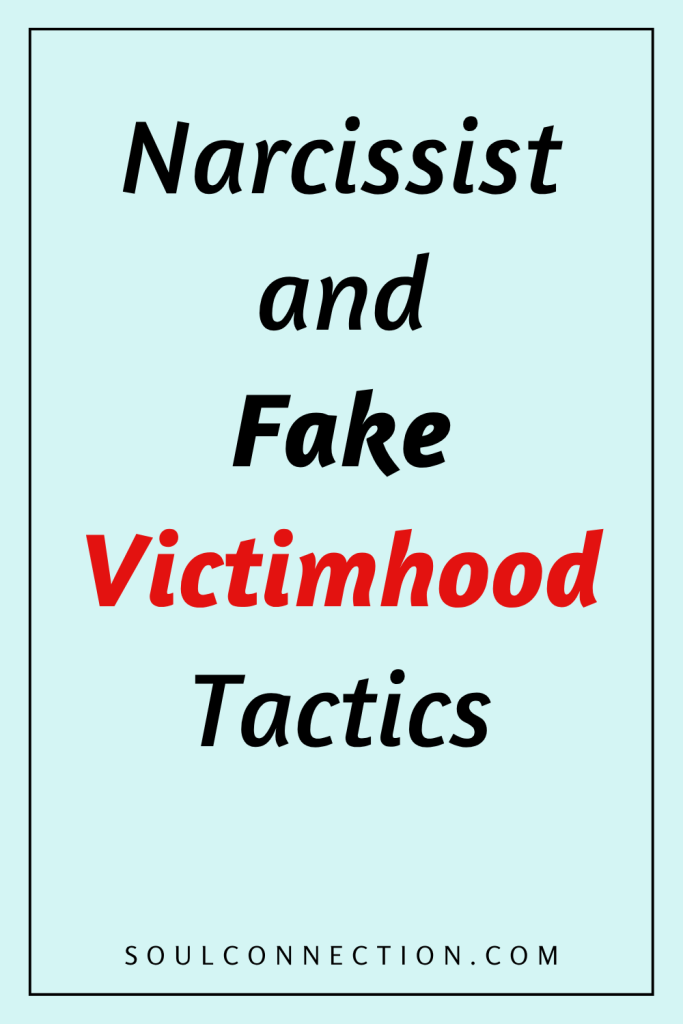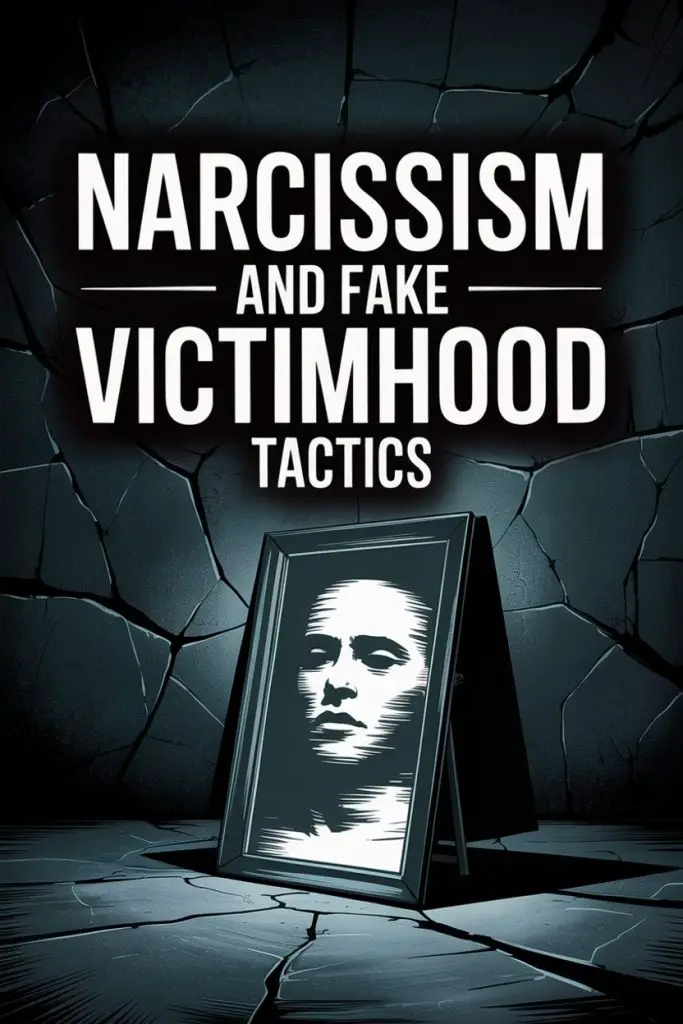Ever noticed how some people always seem to be the centre of their own personal soap opera—tears, gaslighting, and all? No matter what happens, their suffering is just a smidge more dramatic and real than anyone else’s.
Welcome to the world of narcissistic fake victimhood, where personal responsibility goes to die and crocodile tears flow like boxed wine at a family reunion.
Ready for a reality check? Here’s how these tactics work, how to spot them, and how to save your own sanity from their performance art.
The Star of the Tragedy
Narcissists excel at playing the wounded protagonist. Life is so unfair, and everyone is always out to get them—just ask them.
This isn’t so much a personality quirk as a calculated move: being the victim gets attention, sympathy, and, best of all, a free pass from owning up to any actual wrongdoing.
These folks have mastered the art of spinning every situation so that—even when they’re caught red-handed—it somehow morphs into their own personal persecution.
Suddenly, your valid complaint about their behaviour becomes an attack on their very soul.
If you’ve ever walked away from a conversation both apologizing and completely confused, congratulations: you’ve just met the Tragic Star.
Turning the Tables
Ever accused a narcissist of something? Suddenly, you’re the bad guy. This is called DARVO: Deny, Attack, Reverse Victim and Offender.
One moment, you’re raising a concern about their toxic behaviour. Blink, and suddenly you’re the monster who’s making their life miserable.
This is more than just garden-variety defensiveness. It’s a full-on, Broadway-worthy reversal, complete with tears or righteous anger.
The goal: put you on the defensive, make you question your own memory, and ensure the focus stays squarely on their wounds, real or imagined.
Emotional Blackmail as a Lifestyle
Nothing says “please do what I want” like a strategically-timed meltdown. Narcissists wield emotional crises like a toddler wields a tantrum in the cereal aisle—loud and impossible to ignore.
The script usually goes something like this: You draw a boundary. They crumble, insisting no one has ever been as cruel to them as you.
If you don’t give in, the emotional volume gets cranked up to eleven. Cue sobbing, threats of doom, or tales of their tragic past.
This isn’t genuine vulnerability. It’s a tactic. The aim is to guilt-trip you into caving. And if you do, the cycle starts all over again.
Selective Memory and Convenient Amnesia
Ever noticed how certain details just seem to slip a narcissist’s mind—especially the ones that paint them in a less-than-angelic light?
They’re world champions at rewriting history.
The cruel thing they said? Must have been someone else. Your feelings? Surely, you misunderstood. That promise they made? Never happened.
This selective amnesia isn’t accidental. It’s a tool for self-preservation—and for making you doubt your own memory. Pro tip: Keep receipts (metaphorically and literally).
The Martyr Complex
Nothing fires up a narcissist quite like the noble suffering of martyrdom. “After everything I’ve done for you, this is how you repay me?”
They’ll recount their sacrifices with the gravitas of a war hero—usually leaving out the part where those “sacrifices” weren’t so much generous as self-serving.
If you don’t recognize their suffering, don’t worry—they’ll remind you. Loudly. Often. And with a list of your alleged shortcomings for good measure.
Recruiting an Audience
Every great performance needs an audience. That’s why narcissists love to drag others into the drama. Family, friends, neighbours—no one is safe from the retelling of their woes.
They’ll share a version of events that puts them in the best possible light (and you looking suspiciously like the villain). These “flying monkeys” then leap to their defence, often without ever hearing your side.
It’s classic triangulation: divide and conquer the social circle, leaving you isolated and doubting yourself.
Weaponizing Sensitivity
Narcissists are sensitive souls—especially when it comes to their own egos. Criticism, no matter how gentle, gets treated like a personal assault. Suddenly, their feelings are so hurt they can barely go on.
See also: “I can’t believe you’d say that to me!” and “Nobody has ever made me feel so worthless.” These outbursts don’t come from genuine hurt.
They’re tactical moves designed to shut down the conversation and ensure you never dare to bring it up again.
Feigned Helplessness
There’s nothing like pretending not to know how to do something to get someone else to do it for you. Narcissists are old pros at this one.
Suddenly, the person who can manipulate three group chats at once can’t possibly figure out how to load a dishwasher or apologize like a grownup.
This act isn’t about actual incapacity. It’s about lowering expectations so they never have to step up—or, even better, you’ll do it all for them.
Distress as a Distraction
When all else fails, a narcissist will create a crisis. Any crisis. Maybe it’s a sudden illness, a work catastrophe, or a deeply existential dread about something totally unrelated to your actual concern.
This serves to shift the spotlight away from any inconvenient truths (and their own behaviour) and back onto their suffering.
You’re left firefighting their latest emergency, while the original issue disappears faster than your will to host family dinners.
Guilt-Tripping Olympics
Narcissists don’t just compete in guilt-tripping. They set world records.
Any attempt to hold them accountable, and the medals come out: “After everything I’ve done for you, this is how you treat me?” “I guess I’m just a terrible person and you’re the perfect one!”
If you don’t immediately comfort them and retract your complaint, prepare for the poutiest silence you’ve ever experienced. And, naturally, the expectation that you’ll make it up to them. With interest.
Self-Diagnosis and Pity Props
A classic twist: suddenly the narcissist is awash in vague illnesses, mysterious ailments, or fresh tales of emotional trauma—whenever the heat is on.
They’ll share how uniquely hard things have been for them, sometimes even appropriating other people’s issues for extra effect. This isn’t about seeking help. It’s about shifting focus and harvesting sympathy like it’s going out of style.
How to Stop Playing Their Game
Standing up to these tactics isn’t easy, especially if you’ve been caught in the blast radius for a while. But it’s possible, and you don’t need a psychology degree or a spiritual retreat in Bali.
Set clear boundaries—and stick to them, even when the guilt trips start.
Calling out obvious manipulations (“That sounds like you’re trying to make me feel guilty instead of talking about what happened”) can help, though be prepared for some theatrical pushback.
Keep communication brief and factual, especially when emotions start escalating. Having an outsider’s perspective—a trusted friend or counsellor—can also give you back a sense of reality, when your own feels a bit shaky.
Documenting interactions can be helpful, too, especially when you’re being gaslit about what was actually said.
And remember: you are not obligated to fix, rescue, or endlessly comfort someone who makes a hobby out of playing the victim.
Reclaiming Your Peace
Sharing your home or heart with a narcissist who thrives on fake victimhood can turn everyday life into a never-ending episode of “EastEnders”—but with fewer commercial breaks.
Spotting these tactics for what they are is half the battle.
The other half? Prioritizing your own emotional health and refusing to play supporting actor in someone else’s melodrama.
Sometimes, you just have to let the curtain fall…and walk out for some fresh air.


